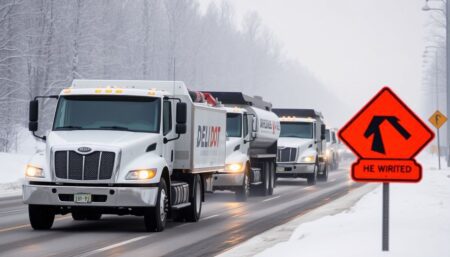In the heart of the American landscape, nestled between the towering peaks and the sprawling plains, lies a unique subculture that has been steadily growing in numbers and influence. These are the preppers, the doomsday enthusiasts, the survivalists
Why do some Americans choose to prep for potential disasters or ‘doomsday’ scenarios?
Prepping, or preparing for potential disasters, is a logical choice for many Americans due to several reasons. Firstly, it provides a sense of security and peace of mind, knowing that they have taken steps to protect themselves and their loved ones. Secondly, it’s a proactive approach to mitigate the impact of unexpected events, such as natural disasters, economic collapse, or societal unrest. Additionally, prepping encourages self-sufficiency and resilience, which can be empowering and beneficial in various situations.
What are some common misconceptions about preppers and prepping?
There are several misconceptions surrounding preppers and prepping. One common belief is that preppers are doomsday fanatics who live in fear and expect the worst to happen at any moment. However, many preppers are simply forward-thinking individuals who understand the importance of being prepared for various scenarios. Another misconception is that prepping is expensive and only accessible to the wealthy. While it’s true that some preppers invest significant resources, there are numerous affordable and practical ways to start prepping on a budget.
What are some essential supplies to have on hand for various disaster scenarios?
Having essential supplies is crucial for surviving various disaster scenarios. Some of the most important items to have on hand include water (aim for at least one gallon per person per day), non-perishable food (with a focus on high-calorie, long-lasting items), a reliable source of light (such as flashlights, lanterns, or solar-powered lights), first aid supplies, medications, and important documents (like identification, insurance policies, and bank records). Additionally, having a means of communication, such as a portable radio or satellite phone, can be invaluable in keeping you informed and connected during a disaster.
How can I store water for long-term use?
Storing water for long-term use involves several steps to ensure the water remains safe to drink. First, choose food-grade containers that are designed for water storage, such as plastic bottles, jugs, or barrels. Next, fill the containers with tap water, leaving no airspace to minimize the risk of contamination. Then, add a water preserver, such as unscented bleach or a commercial water preserver product, to extend the shelf life of the water. The general rule is to add 1/8 teaspoon of bleach per gallon of water. Finally, store the containers in a cool, dark place, away from direct sunlight and heat sources, to maintain the water’s quality.
What are some creative ways to preserve food without electricity?
Preserving food without electricity can be achieved through various methods, such as canning, dehydrating, fermenting, and root cellaring. Canning involves heating food in sealed jars to kill bacteria and prevent spoilage. Dehydrating removes moisture from food, making it difficult for bacteria and mold to grow. Fermenting uses beneficial bacteria to preserve food and enhance its flavor. Root cellaring takes advantage of the natural cool temperatures and humidity found in underground spaces to store food, such as root vegetables and fruits, for extended periods. Additionally, smoking and salting meats can help preserve them without the need for refrigeration.
How can I create a bug-out bag for my family?
A bug-out bag, or ‘go-bag,’ is a portable kit that contains the items you may need to survive for 72 hours when evacuating from a disaster. To create a bug-out bag for your family, start by choosing a durable, easy-to-carry backpack or bag for each family member. Then, pack essential items such as water, non-perishable food, a first aid kit, medications, important documents, a flashlight, a portable radio, and a map of the area. Additionally, include clothing and bedding suitable for the expected weather conditions, as well as personal hygiene items and any necessary tools. Tailor the contents of each bag to the individual’s needs, such as including baby supplies for infants or specialized medical equipment for those with specific health conditions.
What skills are essential for surviving in a post-disaster world?
Developing certain skills can be invaluable for surviving in a post-disaster world. Some essential skills include knowing how to purify water, grow and preserve food, hunt and fish, build shelters, navigate without modern technology, and administer first aid. Additionally, learning how to repair and maintain essential tools and equipment, such as vehicles, generators, and firearms, can be beneficial. Developing self-defense skills and understanding basic self-defense principles can also help protect you and your family in uncertain situations. Lastly, cultivating a strong sense of community and cooperation can be crucial for long-term survival, as working together with others can greatly increase your chances of success.
How can I involve my family in prepping activities?
Involving your family in prepping activities can help ensure that everyone is prepared and knowledgeable in case of an emergency. Start by having open and age-appropriate conversations about the importance of being prepared and the potential risks your family might face. Encourage your children to participate in prepping tasks, such as helping to pack bug-out bags, creating a family emergency plan, or learning basic first aid skills. Make prepping activities fun and engaging, such as turning a family camping trip into an opportunity to practice survival skills or hosting a family game night focused on strategy and problem-solving. By involving your family in prepping activities, you’ll not only be better prepared for emergencies but also strengthen your family’s bond and resilience.
What should I do if I’m on a tight budget but still want to start prepping?
Starting to prep on a tight budget is absolutely possible with some creativity and resourcefulness. Begin by assessing your current situation and prioritizing your needs. Focus on acquiring essential, long-lasting items that can be used in various scenarios, such as water, non-perishable food, and first aid supplies. Look for affordable, second-hand, or homemade alternatives to expensive gear and equipment. For example, you can make your own emergency candles or purchase used camping gear. Additionally, consider learning new skills, like gardening or sewing, that can help you become more self-sufficient. Joining a local prepping group or community can also provide support, resources, and opportunities to barter or trade items.








